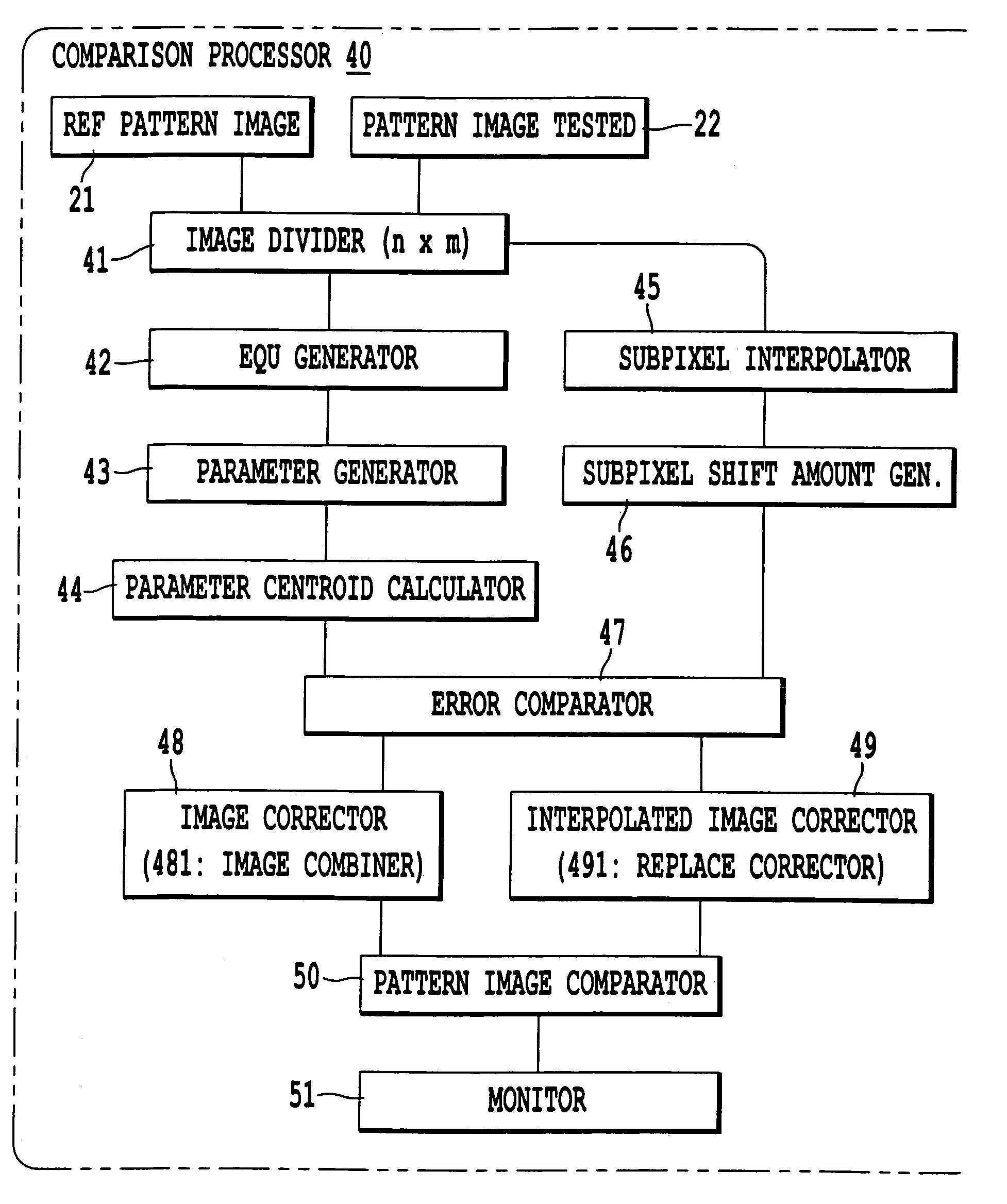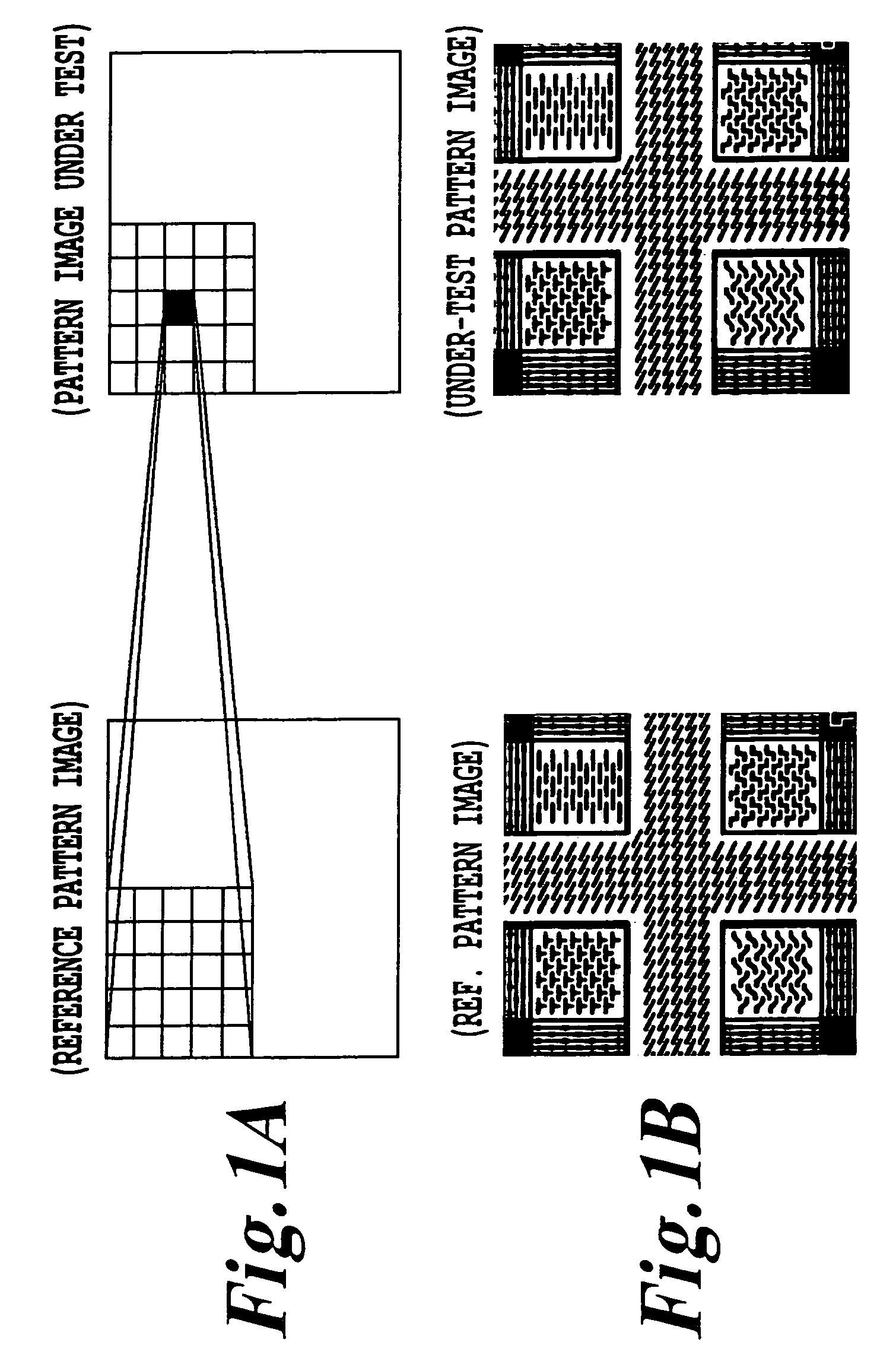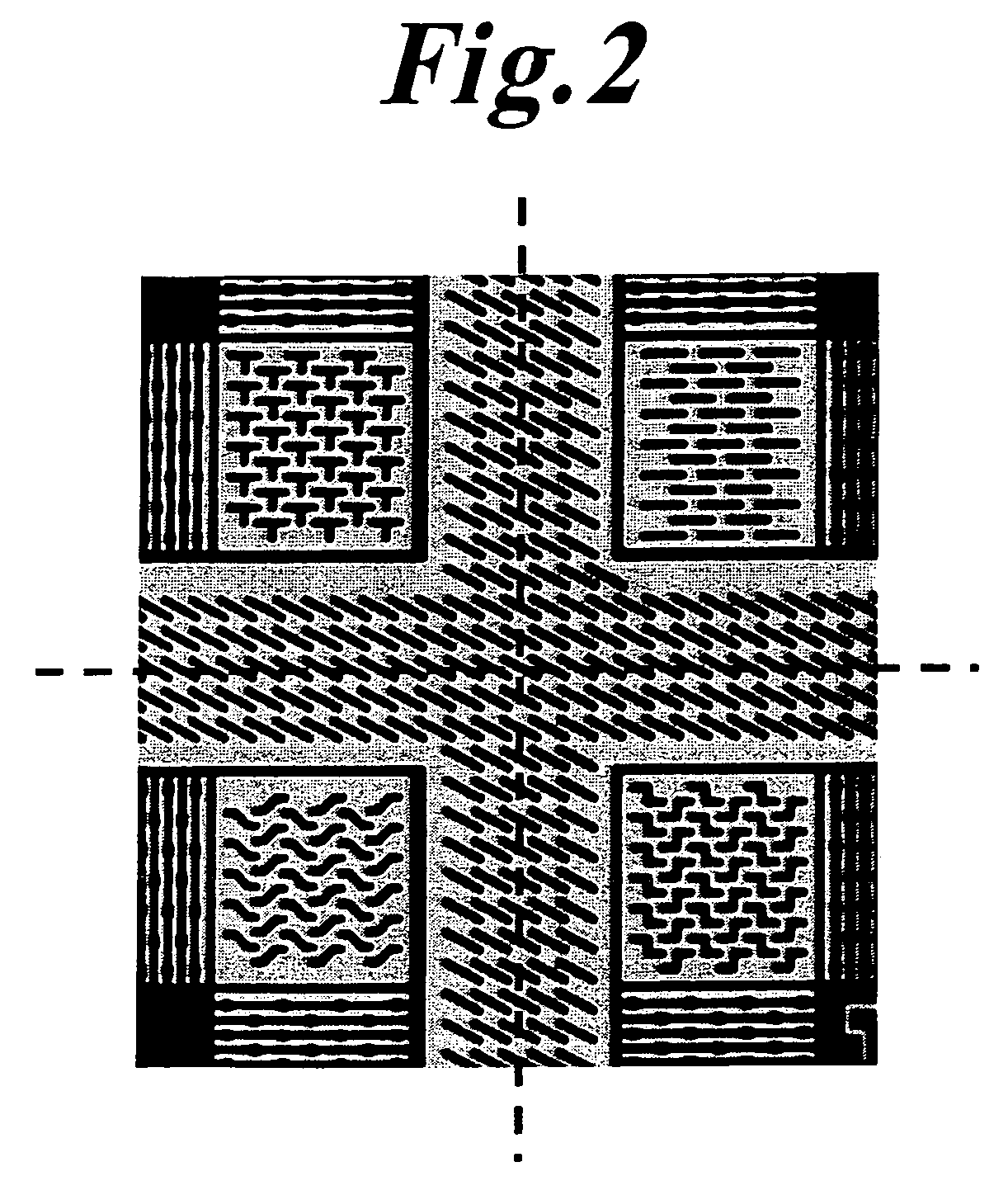Pattern inspection system using image correction scheme with object-sensitive automatic mode switchability
a technology of automatic mode switchability and pattern image, applied in image enhancement, image analysis, instruments, etc., can solve the problem that the approach to identifying 2d linear predictive models can sometimes encounter the failure to establish any intended accuracy of model parameters, and achieve the effect of correcting or “amending”
- Summary
- Abstract
- Description
- Claims
- Application Information
AI Technical Summary
Benefits of technology
Problems solved by technology
Method used
Image
Examples
example 1
(Example 1 of Automatic Correction Switch Method)
[0070]A first exemplary method for automatically switching between the 2D linear predictive modeling correction and bicubic interpolation-based correction will be described. See FIG. 6, which shows a procedure of the automatic correction mode-switching method. In the case of 2D linear predictive modeling correction, the procedure starts with step S1, which subdivides each of the inspection reference pattern image and under-test pattern image into a matrix of n rows and n columns (n×n matrix) of small square regions or “dies.” If n=1 then the result is “no division.” Although image division into n×m strip-like regions is also employable, the following explanation deals with the case of n×n division for purposes of convenience in discussion herein. Note here that no image division is performed in the case of the bicubic interpolation-based correction. The procedure then goes to step S2 which generates simultaneous equations for the n×n ...
example 2
(Example 2 of Auto-Correction Switch Method)
[0071]A second exemplary method for automatically switching between the 2D linear predictive modeling correction and the bicubic interpolation-based correction is shown in FIG. 11 in flowchart form. This method stated here includes a process for automatically setting up the dividing number of 2D linear predictive models also. For example, in the case of a pattern image which locally has very few pattern components in its lower mid zone as shown in FIG. 8, when an attempt is made to simply divide such partly extra-low density pattern image into a matrix of 4×4 of portions, one of these divided regions becomes noticeably low in density as shown in FIG. 9A, resulting in obtainment of an image with its centroid being deviated significantly—i.e., large eccentricity. It is thus revealed that this division number is deemed improper for the 2D linear predictive modeling. Alternatively, when dividing the image into a matrix of 2×2 portions as shown...
example 3
(Example 3 of Auto-Correction Switch Method)
[0074]An explanation will be given of a third exemplary method for automatically switching between the 2D linear predictive modeling correction and bicubic interpolation-based correction. This method is designed to synthesize, by use of partial cutout and replacement, a corrected pattern image by means of the image subdivision and 2D linear predictive modeling and an interpolation-corrected image based on the bicubic interpolation. Suppose that the image of interest is divided into 4×4 regions as shown in FIG. 12A. Imagine that these regions include a region with its centroid position being largely offset. In this case, let it be combined together with a corresponding cutout or “cropped” part of the interpolation-corrected image as obtained by the bicubic interpolation-based correction in a way as indicated by dotted line linking between FIGS. 12A-12B. A procedure of such cut-and-paste process is shown in FIG. 13. This procedure is general...
PUM
 Login to View More
Login to View More Abstract
Description
Claims
Application Information
 Login to View More
Login to View More - R&D
- Intellectual Property
- Life Sciences
- Materials
- Tech Scout
- Unparalleled Data Quality
- Higher Quality Content
- 60% Fewer Hallucinations
Browse by: Latest US Patents, China's latest patents, Technical Efficacy Thesaurus, Application Domain, Technology Topic, Popular Technical Reports.
© 2025 PatSnap. All rights reserved.Legal|Privacy policy|Modern Slavery Act Transparency Statement|Sitemap|About US| Contact US: help@patsnap.com



